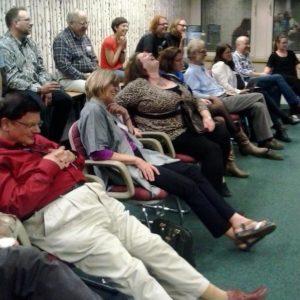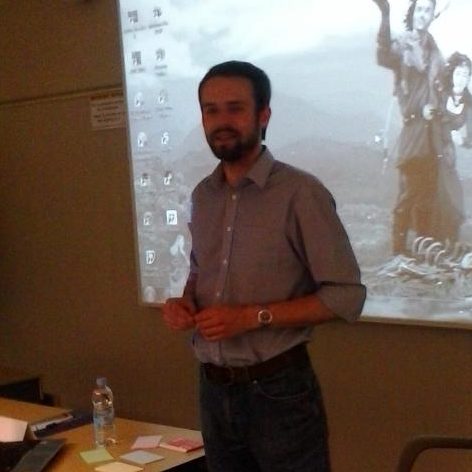Bricolage
BRICOLAGE: construction (as of a sculpture or a structure of ideas) achieved by using whatever comes to hand; also : something constructed in this way
Claude Lévi-Strauss in the 1960s and has undergone a complex genealogy of modifications within the sociologies of culture and religion. As Véronique Altglas writes in a forthcoming article, 'originally a metaphor, "bricolage'" became an anthropological concept to understand cultural and religious creativity, with an emphasis on what organizes it, despite its contingent nature. Transposed in the study of contemporary European societies, bricolage became about what individuals do in relation to cultural practices and lifestyles' (Altglas Forthcoming).
In this interview with Chris, Altglas - the author of the recent OUP monograph From Yoga to Kabbalah: Religious Exoticism and the Logics of Bricolage - discusses this complex genealogy, tracing a movement from forms of cultural warfare to 'playful, postmodern bricoleurs' - what many might be tempted to dub 'pick and mix spirituality'. However, as Altglas goes on to demonstrate, with a particular empirical focus upon Hindu-based Yoga centres and the Kabbalah centre, far from a carefree process of shopping at the 'spiritual supermarket', 'the original meanings and otherness of elements used in this religious bricolage matter, and in fact limits, the popularization of "exotic" religions' (Forthcoming).
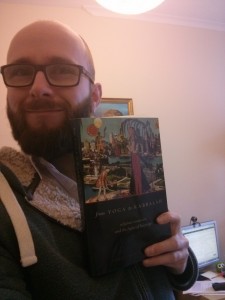 This broad-ranging interview provides a fascinating overview of an important concept that is not only relevant for the study of contemporary 'religion' and 'spirituality', but also speaks to cultural appropriation and construction in general, utilizing a number of stimulating contextual examples along the way. Chris enjoyed the interview so much, he immediately went out and bout Véronique's book... and he suggests you do too!
This broad-ranging interview provides a fascinating overview of an important concept that is not only relevant for the study of contemporary 'religion' and 'spirituality', but also speaks to cultural appropriation and construction in general, utilizing a number of stimulating contextual examples along the way. Chris enjoyed the interview so much, he immediately went out and bout Véronique's book... and he suggests you do too!
This interview was recorded at the European Sociological Association's Sociology of Religion Research Network Conference in Belfast in September 2014. You can also download this podcast, and subscribe to receive our weekly podcast, on iTunes. If you enjoyed it, please take a moment to rate us. And remember, you can use our Amazon.co.uk, Amazon.ca, or Amazon.com links to support us at no additional cost when you have a purchase to make – particularly in the run up to Christmas!
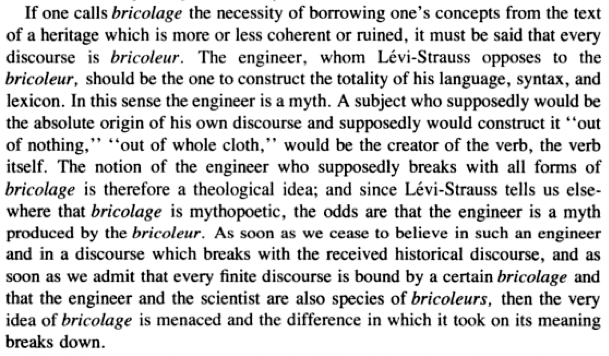
References
- Forthcoming 2015. ‘Bricolage’: Reclaiming a Conceptual Tool. Culture & Religion. 2015. 4.
Baby Boomers, Quest Culture, and Spiritual Seeking
Wade Clark Roof is Emeritus Professor of Religion and Society in the Department of Religious Studies at the University of California, Santa Barbara, and the director of the Walter H. Capps Center for the Study of Ethics, Religion and Public Life. He has published many books and articles on religion in the United States, especially focusing on developments within liberal Protestantism and American mainline congregations, the spiritual journeys of the Baby Boom generation and their effect on the spiritual marketplace, and religious pluralism and civil religion. These investigations have traced the contours of post-WWII American religious and social life, revealing the protean fluidity of “religion” and “spirituality” as scholarly and popular categories.
In this interview with Dusty Hoesly, discussion focuses on Roof’s work on the Baby Boom generation and beyond, particularly as expressed in his books A Generation of Seekers (1993) and Spiritual Marketplace (1999). In these books, Roof combined survey data with panel studies and interviews across a broad spectrum of Americans to describe the “quest culture” and “spiritual seeking” at the heart of America’s changing religious landscape, one which prizes “reflexive spirituality” amidst an increasingly pluralistic and evolving spiritual marketplace.
You can also download this interview, and subscribe to receive our weekly podcast, on iTunes. If you enjoyed it, please take a moment to rate us. And remember, you can use our Amazon.co.uk, Amazon.ca, or Amazon.com links to support us at no additional cost when you have a purchase to make - particularly as the season known by many in certain contexts as "Christmas" is just around the corner, and this might have some impact upon the buying habits of visitors to our website in contexts where this term has particular "meaning" invested in it, due to the particular histories and power structures of those contexts.
MasterBrain! | Mid-Year Special 2014
There are some traditions that make this time of the year special. End-of-year listicles, the "War on Christmas" debate, animations of elves dancing with your family's heads pasted on... and of course, the RSP "Christmas" Special!
This year, Jonathan Tuckett is your host (ably assisted by Ethan Quillen) for MasterBrain, recorded live at the BASR Annual Conference in Milton Keynes this past September. Hear him grill Carole Cusack (Sydney) on Bob Marley and religion, Steven Gregg (Wolverhampton) on Buffy the Vampire Slayer and religion, Beth Singler (Cambridge) on Game of Thrones (and Religion) and your humble Editor-in-Chief David Robertson on the Beatles etc. Who will win the coveted RSP trophy? Is Jon Snow really dead?
Need more fun? Try 2013's Nul Point. Don't forget 2012's chaotic Only Sixty Seconds. Thanks to everyone who took part or just turned up. We'll be back in January, but until then... thanks for listening.
African Christianity in the West

In telling the story of the complex interrelationship between these terms, some might point to the Berlin Conference of 1884/5 as a defining moment marking the beginning of intensive Euro-American Christian mission to Africa. Others might direct attention to the fact that Christianity has been present in Africa almost since its emergence, with three of the best known figures of the early church – Anthony (c. 285-356), Athanasius (296-373) and Augustine (354-430) – living and working in the north of the continent. Still others might prefer a more contemporary approach, focusing upon the Christianities that can be discerned among communities of African origin in Diaspora. This week’s podcast focuses upon the latter.
In this interview with Chris, Dr Afe Adogame of the University of Edinburgh provides a stimulating introduction to this vast and complicated triad.
Discussion covers a wide range of questions, including:
- What makes African Christianity 'African'? Is it only for ‘Africans’? Who decides? Why do we take this huge continent as a single entity?
- If African Christianity is particularly non- or anti-Western, how does this manifest itself in the West? Is it also non-African (i.e. non-indigenous?)
- Does referring to ‘African Christianity in the West’ or even ‘African Christianity’ in general perpetuate racial divides, systems of exclusivity?
- What is the public image of African Christianity in the West? Is there one?
- What does the study of African Christianity - in the West or elsewhere - bring to the study of ‘religion’ in general?
This interview was originally conceived as a kind of two-parter with an interview on ‘African Indigenous Traditions in the West’ which has, as yet, not occurred. Of course, it must be stated that ‘Christianity’ and ‘Indigenous Traditions’ are not the full story of ‘religion’ in Africa, with one glaring omission being ‘Islam’ amongst others. However, due to time constraints this interview will focus almost exclusively on ‘Christianity’ and we shall attempt to rectify this in the future.
You can also download this interview, and subscribe to receive our weekly podcast, on iTunes. If you enjoyed it, please take a moment to rate us. And remember, you can use our Amazon.co.uk, Amazon.com or Amazon.ca links to support us at no additional cost when buying books, cooking utensils, waistcoats, stuffed animals, and more.
Understanding the Secular
Fitzgerald 2007, 54).
In many cases, conceptualizations of the secular are imagined only after the category of religion has been populated with ‘the good stuff’, with the secular receiving decidedly less good stuff (perhaps an understatement in certain contexts). In this view, the secular was an afterthought, a ‘second-class citizen’ so to speak. However, what happens if the scholarly lens is shifted towards the ‘secular’, with ‘religion’ being placed on the back burner? In Thomas Coleman’s interview for The Religious Studies Project, he sits down with sociologist Phil Zuckerman and philosopher John R. Shook to discuss all things ’secular‘. Making their own contributions to the discourse, Shook and Zuckerman briefly discuss the forthcoming Oxford Handbook of Secularism they are co-editing, the growing field of secular studies, what it might mean to ’be secular‘, different secularisms, and offer up two different views of the relationship between categories such as ’religion‘ and ’secular‘.
You can also download this interview, and subscribe to receive our weekly podcast, on iTunes. If you enjoyed it, please take a moment to rate us. And remember, you can use our Amazon.co.uk, Amazon.com or Amazon.ca links to support us at no additional cost when buying books, cooking utensils, waistcoats, stuffed animals, and more.
References
- Fitzgerald, Timothy. 2007. Discourse on Civility and Barbarity: A Critical History of Religion and Related Categories. New York and Oxford: Oxford University Press.
Pilgrimage in Japan and Beyond: Part 1
The practice of pilgrimage is generally held to be a core feature of religious traditions. Pilgrimage developed as a practice available to only a few. The danger of the road, the cost of travel, and restrictions of class and feudal systems made it impossible for the common people to travel to remote sacred places. Similar to the situation in Early Medieval Europe (Sumption 1975: 11-12), political instability in pre-Tokugawa Japan (pre-1603) and an overall hostility to travelling strangers discouraged even some willing pilgrims from visiting many famous sites. Whether it was wandering Buddhist monks circuiting Medieval Japan and performing healing rituals or Heian-aristocracy visiting Buddhist sites famous for their wish-granting powers, the practice of pilgrimage, and the special benevolence of the deities that went along with it, was reserved for a handful of people who had time and wealth to spare in order to afford the travel and to secure their safety on the dangerous routes.
Since then, pilgrimage has undergone a number of transitions that have shaped and redefined the way it is practiced and perceived. Various socio-economic and political changes, as well as technological developments, the establishment of modern tourism, and the expansion of the media have changed the way individuals ‘do’ pilgrimage, and shaped scholars’ understandings of modern religious travel, facilitating the transition of pilgrimage from obscure ascetic practice to widely popular touristic activity.
The element of journey, the importance of material culture, the role of media and technology, as well as the commercialisation of the practice of pilgrimage are dictate the conditions of survival and the popularity of pilgrimage today. Pilgrimage is a vivid representation of the way religion interacts with tourism, as we have seen before in our interview with Alex Norman on ‘Spiritual Tourism’. However, the exposure of pilgrimage practice to the influences of tourism and commodification does not necessarily diminish the ‘religious’ or ‘spiritual’ character of the practice. The utilization of the technological advancements of ‘this world’ is an important element in the survival of pilgrimage in Japan and elsewhere, helping it to become a kind of religious ‘pop culture’.
Within Religious Studies, discussion has rarely focused on the so-called this-worldliness of pilgrimage. Yet, in October, RSP interviewer Paulina Kolata was able to sit down with Professor Ian Reader to discuss his publication ‘Pilgrimage in the Marketplace’ (October 2013), which explores the very ‘worldly’ conditions of development, popularisation, and ultimately, survival of pilgrimage centres in connection to the dynamics of the marketplace through which the ‘sacred’ as a category can be sustained. In this interview, Ian offers an insight into the meaning of pilgrimage, particularly in the Japanese context, and discusses the competitiveness of the pilgrimage market, the practice’s connection to tourism, playfulness of religion, and the survival of pilgrimage practice. After a fascinating conversation and a couple of cups of coffee later, we hope that listeners will enjoy this podcast as much as Paula and Ian enjoyed recording it, and we look forward to your discussions.
For ease of listening, we decided to split this interview into two parts. The second part is available below, or at this link, where it was originally published.
Listeners may also be interested in our previous podcasts with Eoin O'Mahony on "Geographies of Religion and the Secular in Ireland", and Alex Norman on "Spiritual Tourism".
You can also download this interview, and subscribe to receive our weekly podcast, on iTunes. If you enjoyed it, please take a moment to rate us. And remember, you can use our Amazon.co.uk, Amazon.com or Amazon.ca links to support us at no additional cost when buying books, cooking utensils, waistcoats, stuffed animals, and more.
References/Further Reading
- Reader, Ian (2013) Pilgrimage in the Marketplace. New York and London: Routledge
- Reader, Ian. and Swanson, Paul (1997) “Editors’ Introduction: Pilgrimage in the Japanese Religious Tradition”, Japanese Journal of Religious Studies 1997 24/3-4 pp.225-270
- Sumption, Jonathan. (1975) Pilgrimage: an image of medieval religion. London: Faber & Faber
Pilgrimage in Japan and Beyond: Part 2
In October, RSP interviewer Paulina Kolata was able to sit down with Professor Ian Reader to discuss his publication ‘Pilgrimage in the Marketplace’ (October 2013), which explores the very ‘worldly’ conditions of development, popularisation, and ultimately, survival of pilgrimage centres in connection to the dynamics of the marketplace through which the ‘sacred’ as a category can be sustained. In this interview, Ian offers an insight into the meaning of pilgrimage, particularly in the Japanese context, and discusses the competitiveness of the pilgrimage market, the practice’s connection to tourism, playfulness of religion, and the survival of pilgrimage practice. After a fascinating conversation and a couple of cups of coffee later, we hope that listeners will enjoy this podcast as much as Paula and Ian enjoyed recording it, and we look forward to your discussions.
For ease of listening, we decided to split this week's interview into two parts. For full podcast notes, and the first part, please click here. Listeners may also be interested in our previous podcasts with Eoin O'Mahony on "Geographies of Religion and the Secular in Ireland", and Alex Norman on "Spiritual Tourism".
You can also download this interview, and subscribe to receive our weekly podcast, on iTunes. If you enjoyed it, please take a moment to rate us. And remember, you can use our Amazon.co.uk, Amazon.com or Amazon.ca links to support us at no additional cost when buying books, cooking utensils, waistcoats, stuffed animals, and more.
The Brethren in Scotland
 In this episode of the Religious Studies Project, David Robertson talks to Joseph Webster (lecturer in Anthropology at Queen's University, Belfast) about his fieldwork in Gardenstoun (usually called Gamrie), a small fishing village on the Aberdeenshire coast in the North-East of Scotland. Despite a population of only 700, the village has six churches, four of which are branches of the Plymouth Brethren, an evangelical conservative Christian denomination which originated in Ireland in the 1820s.
In this episode of the Religious Studies Project, David Robertson talks to Joseph Webster (lecturer in Anthropology at Queen's University, Belfast) about his fieldwork in Gardenstoun (usually called Gamrie), a small fishing village on the Aberdeenshire coast in the North-East of Scotland. Despite a population of only 700, the village has six churches, four of which are branches of the Plymouth Brethren, an evangelical conservative Christian denomination which originated in Ireland in the 1820s.
The discussion begins by considering how Joe went about doing his fieldwork, and how to go about doing an anthropology "at home"; within our own culture, rather than that of some exotic Other. They consider how work like this is important in undermining many of the assumptions that the study of religion is based upon. For example, inasmuch as we tend to think of millennialism in contemporary Britain, it would tend to be in some exclusionary "cult"; yet here is an example among apparently ordinary working Christians. It becomes clear that anthropology, when applied to "ourselves", still has the power to make "the strange familiar, and the familiar strange" (Muesse, 2011).
You can also download this interview, and subscribe to receive our weekly podcast, on iTunes. If you enjoyed it, please take a moment to rate us. And remember, you can use our Amazon.co.uk, Amazon.com or Amazon.ca links to support us at no additional cost when buying books, cooking utensils, waistcoats, stuffed animals, and more.
Religion and Authority in Asia
Given its contextual and perspectival malleability, the notion of ‘authority', and even more so of ‘religious authority’, is challenging to define and to study. In October 2014, a number of scholars working on both ‘traditional’ and new modes of authority gathered for the Religious Authority in Asia: Problems and Strategies of Recognition workshop, which was funded by the Dr Erica Baffelli who in today’s interview with Paulina Kolata discusses the notion of authority and charismatic leadership in the context of her research on New and ‘New’ New religions in contemporary Japan.

Listeners might also be interested in our previous interview with Pauline Hope Cheong on Religious Authority and Social Media.
You can also download this interview, and subscribe to receive our weekly podcast, on iTunes. If you enjoyed it, please take a moment to rate us. And remember, you can use our Amazon.co.uk, Amazon.com, or Amazon.ca links to support us at no additional cost buying books, pet food, socks, digital radios, action figures, and more.
Gurdjieff and the Study of Contemporary Religion
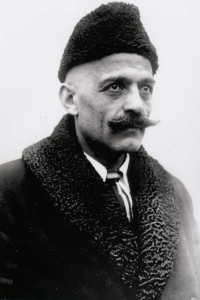 George Ivanovich Gurdjieff was born around 1866 in Russia and came to prominence in the inter-war years in Europe and the US as a "spiritual teacher" or proto-New Age guru. As well as a complex cosmology, Gurdjieff taught that the average human being was literally asleep, and that "waking up" required a great deal of work and "conscious suffering" His work was continued by his pupils following his death in 1949, and a number of books on his teachings remain in print today. To discuss his importance to the study of religion, David Robertson speaks to two remarkable scholars, Carole Cusack of the University of Sydney, and Steven Sutcliffe of the University of Edinburgh.
George Ivanovich Gurdjieff was born around 1866 in Russia and came to prominence in the inter-war years in Europe and the US as a "spiritual teacher" or proto-New Age guru. As well as a complex cosmology, Gurdjieff taught that the average human being was literally asleep, and that "waking up" required a great deal of work and "conscious suffering" His work was continued by his pupils following his death in 1949, and a number of books on his teachings remain in print today. To discuss his importance to the study of religion, David Robertson speaks to two remarkable scholars, Carole Cusack of the University of Sydney, and Steven Sutcliffe of the University of Edinburgh.
We discuss Gurdjieff's image as a "guru"; how deliberate was it, and where did he learn about the Eastern teachers he modelled himself upon? We discuss how much we should treat Gurdjieff as a sui generis "special case", as Gurdjieffian scholars have tended to, or whether we would be better to treat him as a type, like Blavatksy, Steiner, Crowley and others. This then turns the discussion to the issues of researching figures like Gurdjieff whose legacies (and archives) are tightly controlled by their followers, and who often aren't seen as worthy of study by the academy and publishers. We conclude with a consideration of Gurdjieff's importance (or lack thereof) on the later New Age milieu, and popular culture more broadly.
And did Robert Fripp hire Toy Levin for King Crimson because he looks like Gurdjieff?
You may enjoy our previous interviews with Carole Cusack on "Cultural Production" and "Invented Religions".
You can also download this interview, and subscribe to receive our weekly podcast, on iTunes. If you enjoyed it, please take a moment to rate us. And remember, you can use our Amazon.co.uk, Amazon.com, or Amazon.ca links to support us at no additional cost buying books, yoga mats, plant pots, llama-shaped snacks and more.



